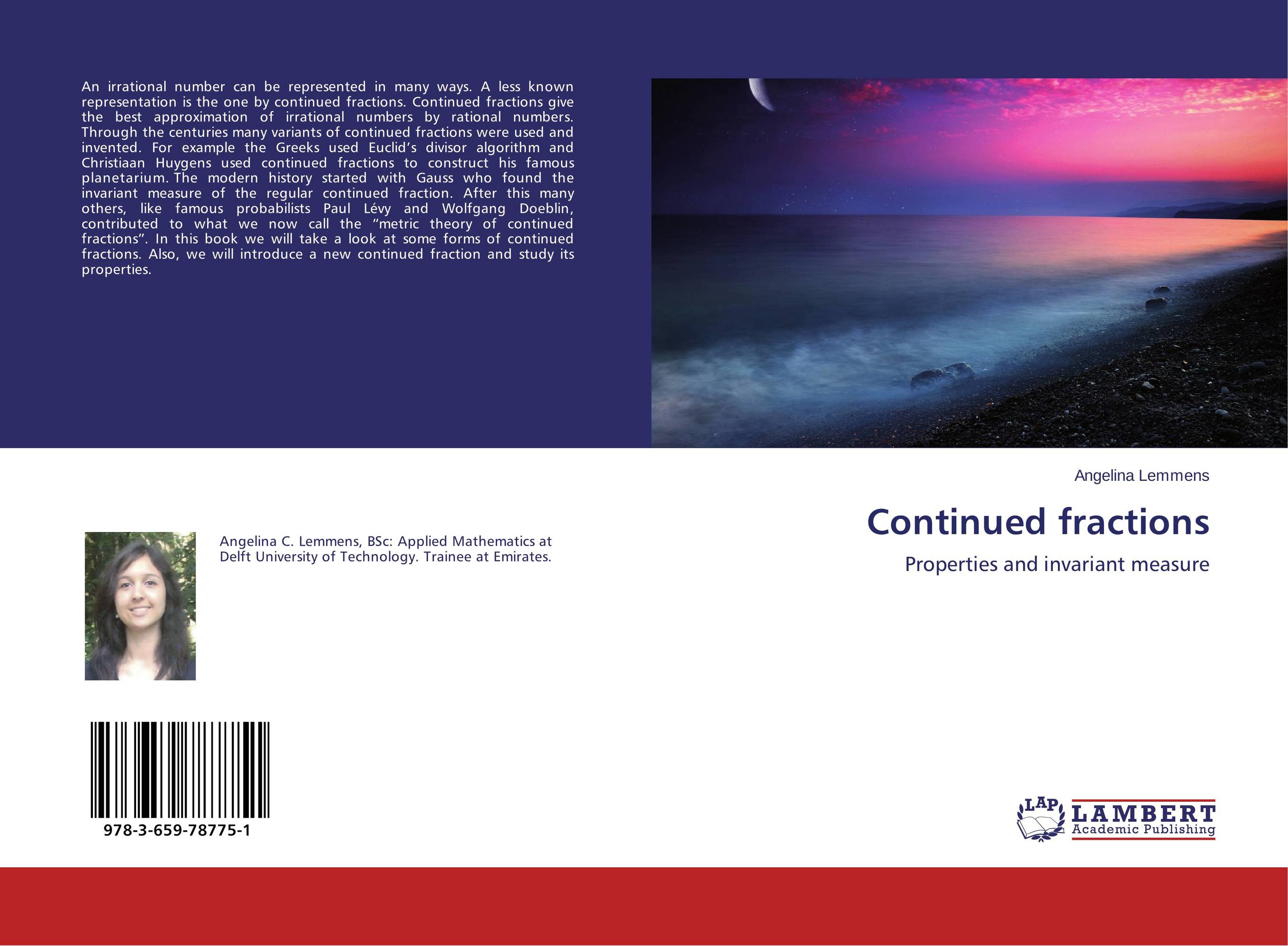| Поиск по каталогу |
|
(строгое соответствие)
|
- Профессиональная
- Научно-популярная
- Художественная
- Публицистика
- Детская
- Искусство
- Хобби, семья, дом
- Спорт
- Путеводители
- Блокноты, тетради, открытки
Continued fractions. Properties and invariant measure

В наличии
| Местонахождение: Алматы | Состояние экземпляра: новый |

Бумажная
версия
версия
Автор: Angelina Lemmens
ISBN: 9783659787751
Год издания: 2015
Формат книги: 60×90/16 (145×215 мм)
Количество страниц: 56
Издательство: LAP LAMBERT Academic Publishing
Цена: 17743 тг
Положить в корзину
| Способы доставки в город Алматы * комплектация (срок до отгрузки) не более 2 рабочих дней |
| Самовывоз из города Алматы (пункты самовывоза партнёра CDEK) |
| Курьерская доставка CDEK из города Москва |
| Доставка Почтой России из города Москва |
Аннотация: An irrational number can be represented in many ways. A less known representation is the one by continued fractions. Continued fractions give the best approximation of irrational numbers by rational numbers. Through the centuries many variants of continued fractions were used and invented. For example the Greeks used Euclid’s divisor algorithm and Christiaan Huygens used continued fractions to construct his famous planetarium. The modern history started with Gauss who found the invariant measure of the regular continued fraction. After this many others, like famous probabilists Paul L?vy and Wolfgang Doeblin, contributed to what we now call the “metric theory of continued fractions”. In this book we will take a look at some forms of continued fractions. Also, we will introduce a new continued fraction and study its properties.
Ключевые слова: continued fractions, invariant measure, properties, ergodic theorem, adler's folklore theorem, N expansion



